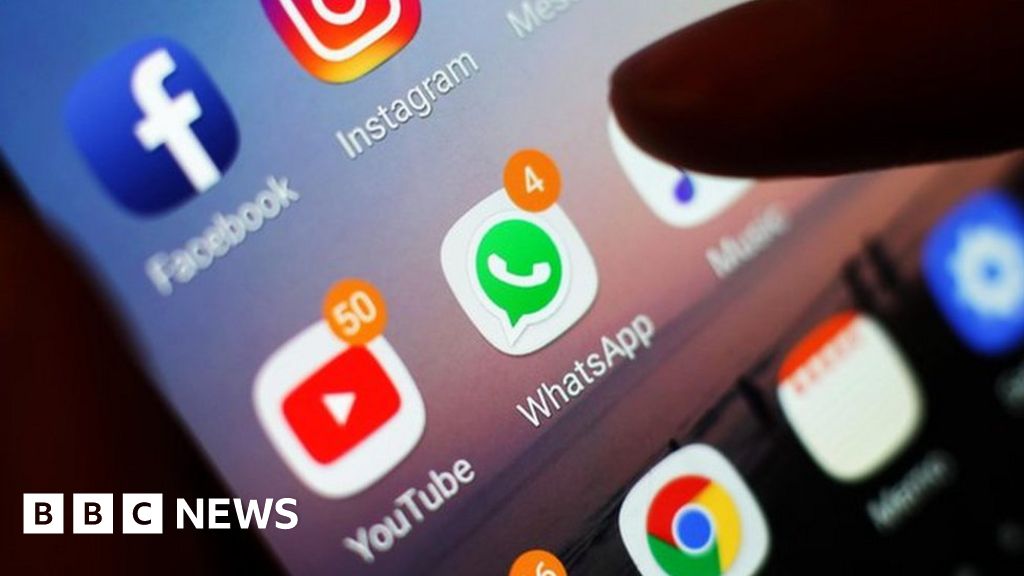After years of debate, the government’s controversial online safety bill, which aims to make the internet safer for children, has become law.
It seeks to force tech companies to take more responsibility for the content on their platforms.
Michelle Donnellan, technology secretary, said: “It will ensure the safety of British society online, not just now, but for decades to come.”
But critics have raised concerns about its implications for privacy.
WhatsApp is one of the messaging services that has threatened to pull out of the UK because of this move.
What new rules are being introduced?
The new law puts responsibility on companies to protect children from certain legal but harmful substances and gives the regulator, Ofcom, more enforcement powers.
It introduces new laws such as requiring pornographic sites to prevent children from viewing content by age verification.
Platforms must also demonstrate that they are committed to removing illegal content, including:
- Child sexual abuse
- Controlling or compulsive behavior
- Severe sexual violence
- Illegal immigration and human trafficking
- Promoting or facilitating suicide
- Promote self-harm
- Cruelty to animals
- Selling illegal drugs or weapons
- terrorism
Cyberflashing has been an offense in Scotland since 2010, but has not been a specific offense in the rest of the UK until now.
The law also includes measures to make it easier for bereaved parents to obtain information about their children from tech companies.
What do the big tech companies say?
The powers that can be used to force messaging services to check the content of encrypted messages for child abuse have been particularly controversial.
Platforms such as WhatsApp, Signal and iMessage say they cannot access or view someone’s messages without removing privacy protections in place for all users, and have threatened to leave the UK rather than compromise message security.
The government has said regulator Ofcom will only want tech companies to access messages when “feasible technology” is developed.
Wikipedia has also previously said that it cannot comply with certain requirements such as age verification
While the act is often talked about as a tool to rein in big tech, government figures show that more than 20,000 small businesses will also be affected.
How will the new rules be implemented?
Violations of the rules can result in fines of up to 10 percent of global revenue for tech companies or 18 million — whichever is greater. Their bosses may also face jail time as punishment.
Ofcom says it will produce codes of conduct that provide guidance on how to stay within the new rules.
The regulator’s chief executive, Dame Melanie Dawes, told MPs on Wednesday that she wanted to outline how she would use her new powers in the next few weeks.
“We will consult literally within a day or two of the King’s speech [7 November]”In our first set of proposals to deal with unlawful harm, because we really want to move quickly on this bill,” he said.
Rocio Concha, director of policy and advocacy at consumer group What?, said: “It’s right that Ofcom plans to move quickly because it has a vital role to play in holding the tech giants to a high standard.”
What do the fighters say?
Sir Peter Wanless, chief executive of the NSPCC, previously said the legislation “means that children up and down the UK are fundamentally safer in their everyday lives.”
He added that this was partly “thanks to the incredible campaigning of abuse survivors and young people”.
Campaigners include Ian Russell, whose 14-year-old daughter Molly died in 2017 after viewing suicide and self-harm content online on sites such as Instagram and Pinterest.
However, Jessica Ni Mehinin, of the Index on Censorship, said encryption is an important part of secure banking, sharing medical information or protecting journalistic sources.
He added that this action “sets a very dangerous precedent. It inevitably puts our private information at risk of interception and misuse by foreign governments, hackers and cybercriminals.”
“It is now vital that Ofcom’s codes of practice strongly defend against mass access to Britain’s private messages. You cannot break encryption once without breaking it forever.”
#Strengthening #internet #safety #rules #law #BBC #News
Image Source : www.bbc.com

